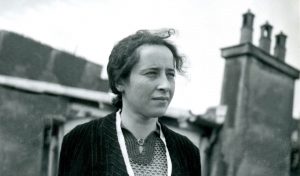Never Forget: Florence’s 2018 Holocaust Remembrance Events

Since 2006, Tuscany has commemorated the liberation of the Auschwitz concentration camp by Allied forces on January 27. This year, however, there is a slight change. The year the racial, anti-Semitic laws that were passed by Vittorio Emanuele III in 1938 will be also be acknowledged. For that reason, the commemoration will start one day earlier on January 26, 2018 and continue through the 27th.
THE PREQUEL
The prequel to Holocaust Remembrance Day will be held at Florence’s Mandela Forum on Friday, January 26. Welcoming students and attendees, musician Enrico Fink, along with his multiethnic orchestra will perform at Florence’s Mandela Forum on Friday, January 26. Fink is a prominent Jewish heritage musician and will be performing songs by Jewish-Czech poetess and writer, Ilse Weber. These pieces will be a tribute to Weber, who wrote many children’s songs during her time as a night nurse in detention at the Theresienstadt concentration camp in former Czechoslovakia. Weber died upon her arrival at Auschwitz along with her youngest son. However her husband and oldest son survived—ensuring that her legacy and commitment to poetry and music would live on.
Next on the agenda at the Mandela Forum are the powerful testimonies of a number of survivors. Nine powerful stories will be heard focusing on four main themes: the racial laws and the persecution Jews experienced, the deportation of Resistance members, the military dissidents after 1943, and lastly the deportation of Jews and minorities. Five of the speakers will physically present at the event while the two other stories will be shared via video. The eighth story will concern Igiaba Scego, an Italian woman with Somali origins whose parents were affected by the fascist colonial racism of the time. The last anticipated speech is that of Katharina von Schnurbein, the coordinator of the European Commission for the fight against anti-Semitism in Europe. (molly hamilton)
REMEMBRANCE DAY
On Holocaust Remembrance Day, January 27, Cinema La Compagnia (via Cavour, 50r, Florence) will be screening Tamar Tal Anati’s “Shalom Italia.” The film commemorates this international memorial day here in Tuscany appropriately, as it documents the journey of three Florence-born brothers who are 73, 82, and 84 years old today who emigrated to Israel after WWII.
The documentary follows their search of a cave where they took refuge as children while fleeing racial persecution during the Second World War. According to the director, “Their quest, full of humor, food, and Tuscan landscapes, straddles the boundary between history and myth, both of which really, truly happened.”
Director Tamar Tal Anati has received over 20 international awards, including “Best Israeli Film” for her film “Life In Stills,” at the Docaviv Festival and “Best New Director” at the Leipzig International Festival. “Shalom Italia” was nominated for an Israeli Academy Award as Best Film.
Anati will be giving an introduction right before the screening, which begins at 7 pm. The film will also have subtitles in English and Italian. Admission to this event is €6 and it is a collaboration between Cinema La Compagnia and Festival dei Popoli. (anna rosin)
THE SEQUEL
VITA ACTIVA: THE SPIRIT OF HANNAH ARENDT Monday, January 29 at 9 pm. Dialogue in English, German and Hebrew with Italian subtitles.
In conjunction with Holocaust Remembrance Day, the film Vita Activa: The Spirit of Hannah Arendt, comes to Florence’s Odeon Theatre. The documentary, directed by Ada Ushpiz, explores the controversial political theorist, her life and work. A German born Jew, she struggled to understand the dichotomy between her German language and culture and the events of WWII and the Holocaust.
The film depicts Arendt’s resistance to any set dogma or school of thought, and delves into her controversial thoughts on totalitarianism, the nature of evil and humans’ quest for freedom. Most well-known for coining the subversive concept of the “banality of evil” while covering Adolph Eichmann’s war crimes trial for the New Yorker, she was maligned by many of her contemporaries. The inspiration for this idea, Eichmann’s stated defense that he was merely obeying orders when he oversaw deportation and extermination of Jews during the Holocaust, led her attempt to understand and rationalize horrific deeds committed by ordinary people. As the student and lover of philosopher Martin Heidegger, a Nazi sympathizer, her private life was no less controversial.
Director Ushpiz uses archival shots of Arendt, Heidegger, Hitler’s speeches and Eichmann’s trial together with Arendt’s words spoken by actress Alison Darcy to create this portrait of a brilliant and complex intellectual. Preoccupied by how totalitarianism could rise in democracies, perpetuated by the inability of citizens to think realistically, the nature of evil and the perils faced by refugees, her ideas, more than 40 years later, still ring true in today’s society. (rita kungel)
